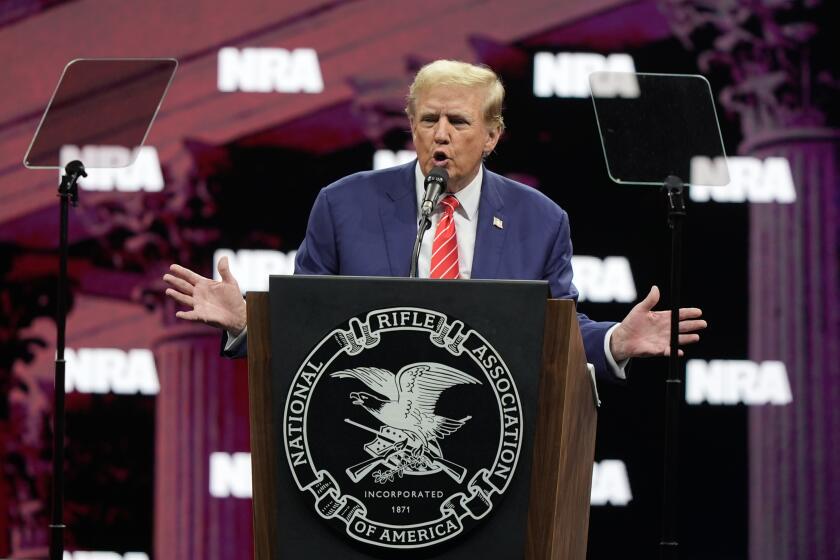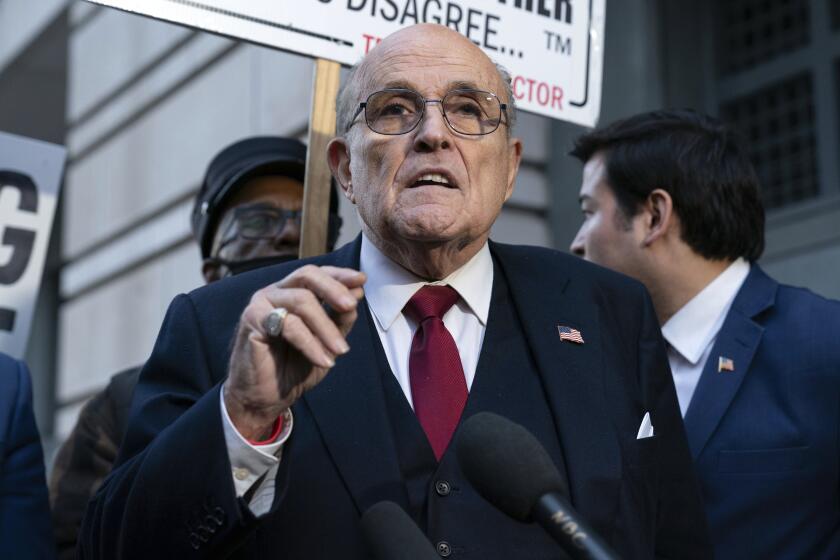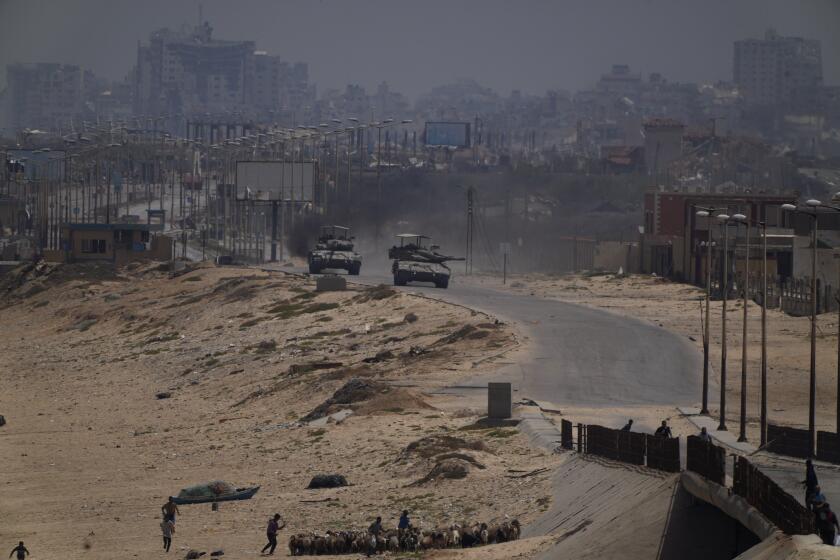New Guatemalan President Orders Military Shake-Up : Central America: De Leon fires defense minister and general most closely linked to May 25 coup. But he sends a mixed signal by filling defense post with a hard-liner.
In a bold move on his first full day in office, Guatemalan President Ramiro de Leon Carpio ordered a major shake-up in the powerful armed forces Monday, firing his defense minister and removing the general most closely linked to a coup that triggered weeks of political turmoil here.
Two senior officers who are thought to have opposed the power grab staged by former President Jorge Serrano were promoted.
De Leon, who served as Guatemala’s senior human rights official until his election late Saturday, announced the dismissals and promotions in a news conference at the National Palace, where he went to work Monday for the first time.
But, sending a mixed signal, De Leon replaced the defense minister with a military hard-liner.
In an interview, the president pledged to make changes in the military, even though he risks incurring the wrath of an institution that continues to wield enormous behind-the-scenes power.
“Fortunately, within the army, there is an understanding that it is time to prepare for peace, time to prepare for working professionally within a democratic system,” he said.
“That is not something that is so easy, because for many years that is not how (the armed forces’) role was performed. Still, I am very certain that this is the way I will govern. Otherwise, I would prefer not to govern.”
De Leon fired Defense Minister Gen. Jose Domingo Garcia Samayoa, who initially supported Serrano when he suspended the constitution May 25. And he promoted a combination of hard-line and more moderate officers in a clear attempt to strike a balance between conflicting military factions.
The changes were seen less as an effort to exert control over the armed forces than as a move to align himself with the more moderate officers who are considered to be tolerant of civilian rule.
De Leon clearly believes he must step carefully, initiating reform in the armed forces and promoting some of the younger officers, without provoking a violent backlash from the institution.
To that effect, he placed several hard-liners in key positions. Garcia Samayoa was replaced with Gen. Jorge Roberto Perussina, a former defense chief of staff and a man diplomats describe as a cold but intelligent “soldier’s soldier.” The appointment stunned many who were expecting someone more moderate. But by naming Perussina, De Leon paid his respects to the military hierarchy, since the general was generally considered next in line for the defense job.
“They had to send a signal of some kind of change,” Gabriel Aguilera, a political scientist who studies the military, said of the announced moves. “Garcia Samayoa was the most obvious choice (to go). . . . By respecting the hierarchy, some internal tensions are avoided.”
Gen. Mario Enriquez, who is considered a moderate who favors reform within the military, was promoted to defense chief of staff. He had been deputy chief and had been mentioned frequently as a likely defense minister.
Among the most significant changes announced Monday, De Leon said he was replacing Presidential Chief of Staff Gen. Francisco Ortega Menaldo with intelligence chief Col. Augusto Perez Molina. Perez Molina and the intelligence network he headed were said to have opposed Serrano’s coup, and his promotion is seen as a reward.
Ortega Menaldo, who reportedly is being transferred to a remote war zone, was widely regarded as the real power behind Serrano, and many Guatemalan politicians and diplomats believe Ortega Menaldo was the actual instigator of Serrano’s decision to seize absolute power.
As presidential chief of staff, he controlled access to Serrano and his calendar, and he represented direct military access to the presidential office.
De Leon said he was removing Garcia Samayoa because of “confusing events” that took place in the weeks after Serrano staged his so-called “self-coup,” suspending the constitution and declaring that he would rule by decree. Garcia Samoya withdrew support for Serrano amid a growing international and domestic outcry. Then he threw his support behind Vice President Gustavo Espina Salguero, who made a short-lived attempt to seize the presidency after Serrano was ousted.
Garcia Samayoa originally said Espina had resigned, then said that was a mistake. Finally, Garcia Samayoa withdrew his support of Espina when he was ruled ineligible for the presidency. The awkward spectacle appeared to have eroded Garcia Samayoa’s stature within his own institution, provoking unrest among the rank and file.
Congress chose De Leon to replace Serrano in a special election. Serrano fled the country last week and has been granted asylum in Panama.
In the interview, De Leon also said he hopes to capitalize on the rare unity shown by Guatemalans in the recent political turmoil to build a more democratic government in this violent country.
“The idea is to sit down at a table and reach a great national agreement, not just to confront one sector with another but to make . . . each sector sitting at the table understand each other,” he said. “Otherwise, I fail.”
De Leon said he would welcome foreign aid from countries that froze their aid to protest Serrano’s action. On Monday, the Clinton Administration said it was resuming its assistance program, freeing up about $30 million.
More to Read
Start your day right
Sign up for Essential California for news, features and recommendations from the L.A. Times and beyond in your inbox six days a week.
You may occasionally receive promotional content from the Los Angeles Times.







